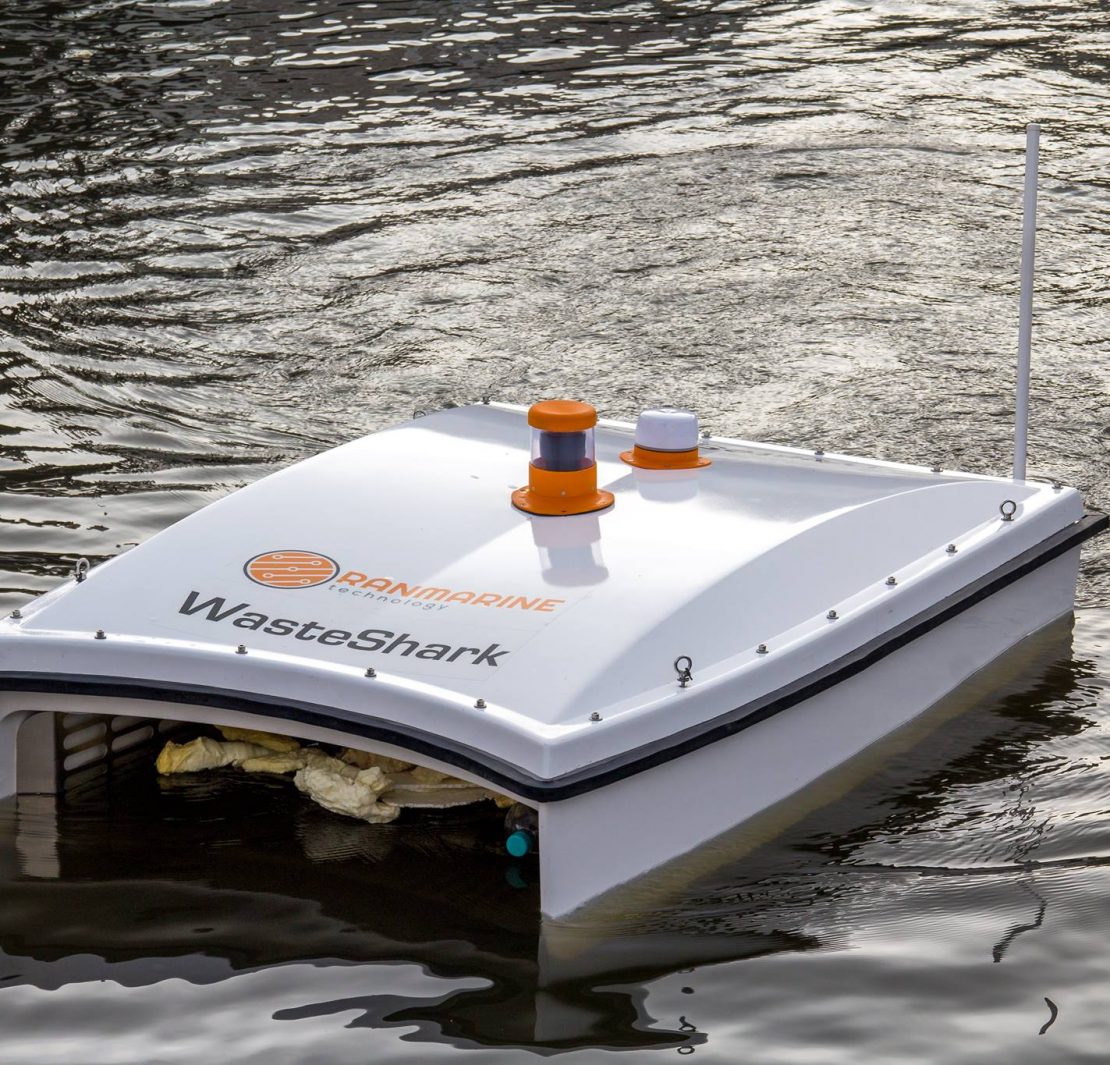Our creeks and rivers are overflowing with garbage, so much that you can barely see the water. After a 2015 report revealed that the Philippines is one of the world’s largest contributors to ocean waste, there’s been a growing amount of concern among Filipinos and it’s evident. People are consuming less plastic and participating in clean-up drives more (READ: You can now volunteer for the Manila Bay cleanup drive) which is, of course, a good thing.
An aquatic drone called WasteShark hopes to clean up the world’s shorelines, too, by sucking up the garbage it catches on its way. Developed by a Dutch company called RanMarine Technology, the robot can swallow up to 60 kg. or 200 liters of plastic, algae, and other waste in one trip. Its inventors said that the machine is pollution-free and shouldn’t be a problem to marine creatures.
The drone functions like a whale shark, a known ocean predator and the largest fish in the world. “It’s got an enormous mouth. It silently skims the water and tracks down its prey, keeps it in its belly,” said Richard Hardiman, CEO of RanMarine Technology, in a TED Talk.
WasteShark can swim up to eight hours at a time and can hold as much as 350 kg. of trash in its cage. Its inventors say that once the robot reached its full capacity, it swims back to the shore where it only needs to be emptied before it can swim again.
“It can be steered manually via remote control or through a plotted map on an iPad. It’s best suited for harbors, rivers, and canals,” said RanMarine Technology. Currently, WasteShark has been launched in five countries.
Header image courtesy of RanMarine Technology
Read more:
Manila Bay, a “magnified cesspool”; to undergo Boracay-like rehab in January
Major Manila Bay polluter Manila Zoo to build water treatment plants
Old photos from the glory days of Manila Bay before it was a “toilet bowl”
Read more by Jill Chua:
Our country’s corals aren’t ‘living coral’
You have a voice in a global environmental pact in 2020
Writer: JILL CHUA




